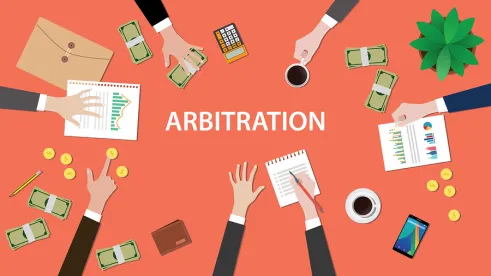The Southern District of New York declined to decide arbitrability questions after the arbitration agreement at issue incorporated the rules of the American Arbitration Association, which include a rule that arbitrators determine their own jurisdiction. The court also rejected a claim that the defendant waived its right to seek arbitration. It therefore compelled arbitration.
Policy Administration Solutions Inc. (PAS) licensed underwriting software for use by insurers. The software was licensed to a subsidiary eventually acquired by QBE Holdings Inc. That subsidiary, Clarendon Insurance Group Inc., entered into a license agreement with PAS to use the software. The license agreement contained an arbitration clause. Clarendon and PAS subsequently entered into a confidentiality agreement. The confidentiality agreement did not contain an arbitration clause and provided that it superseded any prior agreements regarding confidential information received under the confidentiality agreement. PAS claimed that QBE’s subsidiaries made unauthorized changes to its software. PAS ultimately brought suit alleging, among other things, violations of the Copyright Act. PAS moved for a preliminary injunction and a temporary restraining order, and the defendants moved to dismiss PAS’ claims. The district court denied both parties’ motions (it denied the motion to dismiss without prejudice) and stayed proceedings pending the resolution of state court proceedings regarding an arbitration award related to other agreements between the parties. QBE sought to initiate arbitration after the stay was lifted.
PAS opposed arbitration. The court concluded, however, that the license agreement’s arbitration clause left the question of arbitrability to the arbitrator. The arbitration clause incorporated the rules of the American Arbitration Association, one of which provided that the arbitrator had “the power to rule on his or her own jurisdiction.” PAS argued, however, that the license agreement’s arbitration agreement was not operative because the confidentiality agreement superseded the license agreement. The court explained that this presented a question of arbitrability, which, as the court had already noted, was a question for the arbitrator. The court also rejected PAS’ contention that its claims did not relate at all to the license agreement and were instead solely related to the confidentiality agreement. PAS’ reading of the license agreement’s arbitration clause was too narrow and was yet another arbitrability question for the arbitrator to address in any event.
The court also rejected PAS’ argument that QBE had waived its right to seek arbitration by litigating the dispute in federal court. The parties had been in active litigation for 14 months, which the court found to be “well within the range of delays that have not resulted in waiver.” Merely filing a motion to dismiss did not waive the right to seek arbitration, and after the stay had been lifted QBE promptly announced its intention to seek to compel arbitration. Although PAS had asserted that it spent $70,000 litigating the federal action, it was not clear how much of that was due to PAS’ own decision to seek a preliminary injunction.
The court therefore granted QBE’s motion to compel arbitration.
Policy Admin. Sols., Inc. v. QBE Holdings, Inc., No. 7:15-cv-02473 (S.D.N.Y. Aug. 30, 2019).




 />i
/>i
